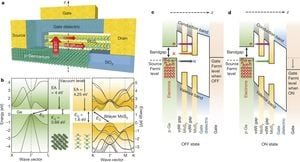China's former retail giant Suining Group is facing restructuring as three of its subsidiaries have officially entered bankruptcy proceedings. The announcement was made public on February 8 through the National Enterprise Bankruptcy Restructuring Case Information Website, detailing the cases of Suining Electric Group, Suining Holdings Group, and Suining Real Estate Group.
The Nanjing Intermediate People's Court accepted the restructuring applications for the three companies on January 26, 2025, assigning case numbers (2025) Su 01 Po 2, 3, 4. The initial creditors' meeting for these restructuring cases is set for April 2, 2025, to be conducted online.
According to information released by Suining E-Commerce, the parent company of Suining Electric and Suining Holdings has informed stakeholders about the court's decision. The decision marks the entry of these famed Jiangsu-based companies—once celebrated as industry leaders—into formal bankruptcy processes.
Currently, Suining Electric Group holds 1.4% of the shares, with Suining Holdings holding 2.75%. The impact of the restructuring on their stock ownership remains uncertain, as changes will depend on future restructuring agreements and judicial rulings. Importantly, neither of these companies hold controlling shares or exert operational influence over Suining E-Commerce, ensuring the corporate governance remains stable during this turbulent time.
Notably, Suining E-Commerce maintains its complete independence across financial, asset, personnel, and technological spectrums, signaling efforts to keep their extensive operations—including retail stores, e-commerce, and after-sales services—intact. Despite this, the group’s bankruptcy has raised eyebrows across the retail and investment sectors.
Suining Group's predicament is significant, with the 2023 annual report indicating total assets worth 124.96 billion yuan but enduring losses reaching 5.703 billion yuan. Their total liabilities soared to 134.48 billion yuan, painting a dire picture of financial health.
The roots of Suining's troubles trace back several years, intensifying after massive investments faltered. The firm acted as the largest strategic investor for Evergrande Group, pouring 20 billion yuan ($3 billion) as part of their expansion and investment strategy, only to find those funds unrecoverable and subject to conversion to equity—heightening the liquidity crisis.
Once hailed as China's retail titan, Suining evolved from specialized air conditioning sales to become one of the headliners of the e-commerce sector during its growth period. Its ambitious growth strategies had them extending their reach across various sectors, including real estate, logistics, esports, and sports investment.
Yet, the company's misfortune reflects broader industry trends. The rise and subsequent struggles of Suining symbolize the operational challenges faced by many retailers who swiftly expanded without securing long-term viability. Various leadership transitions and strategic missteps contributed to their decline.
Investments made by Suining, such as acquiring 80% of Carrefour China for 4.8 billion yuan back in 2019, have since resulted in more than 100 closed stores nationwide and added to the company's liabilities.
By 2020, Suining was grappling with significant debts, and the failure to recoup investments from Evergrande marked the spark for their overarching liquidity problems, which have now culminated to warrant court-sanctioned restructuring.
Looking forward, the recent announcement of indemnity moves, including government interventions from state-owned enterprises and financial institutions, raises questions about future profitability. Suining Group's seemingly uphill battle opens dialogues about the sustainability of aggressive expansion strategies without solid foundational supports.
With movements such as asset liquidation, debt restructuring, and overseeing by designated management teams, the turmoil of Suining's restructuring will likely engage scrutiny from both buyers and investors aiming to capitalize on potential recovery within the still-prominent retail industry.
The conclusion of Suining's golden age seems imminent as the company navigates the intricacies of bankruptcy protections. Observers will be keeping close tabs on how this restructuring plays out, not only for Suining but as a case study illustrating the precarious nature of the retail sector and its broader economic connections within China.



